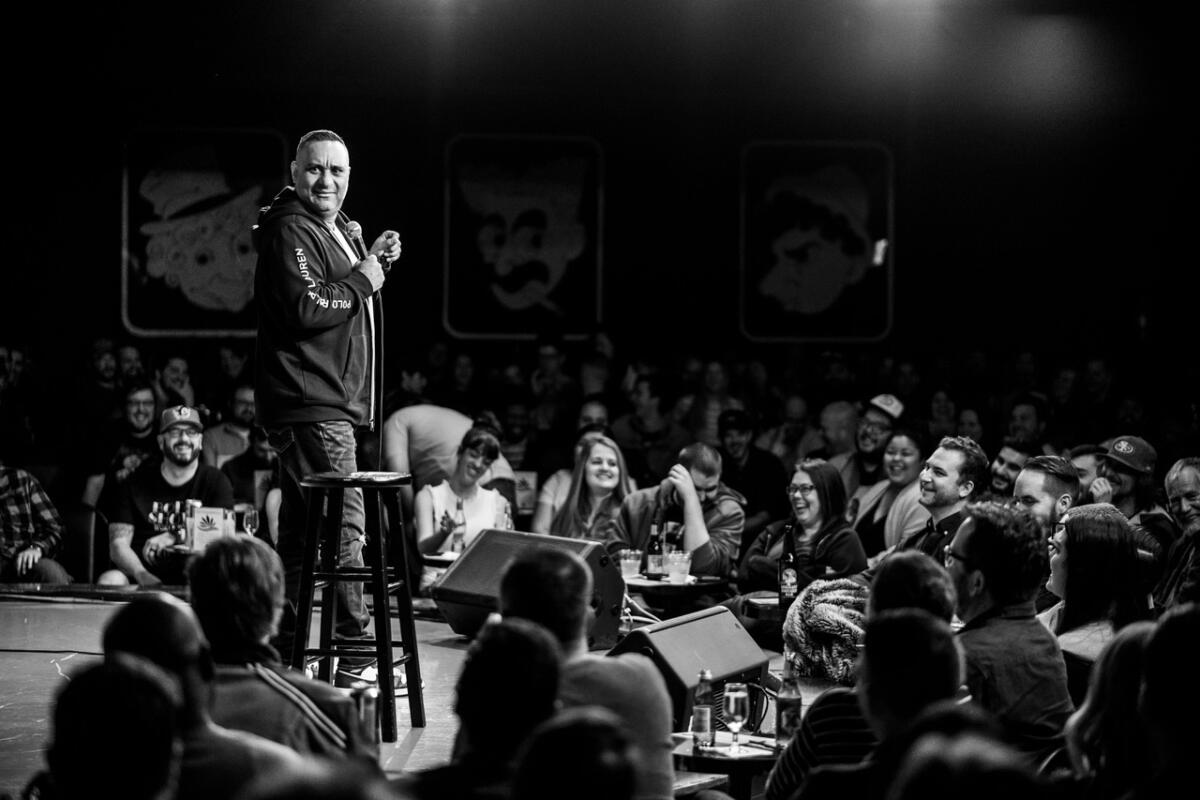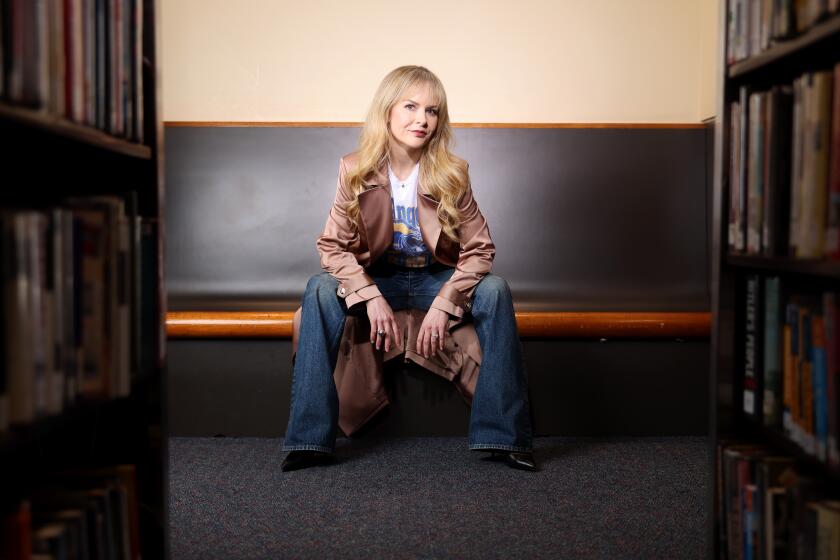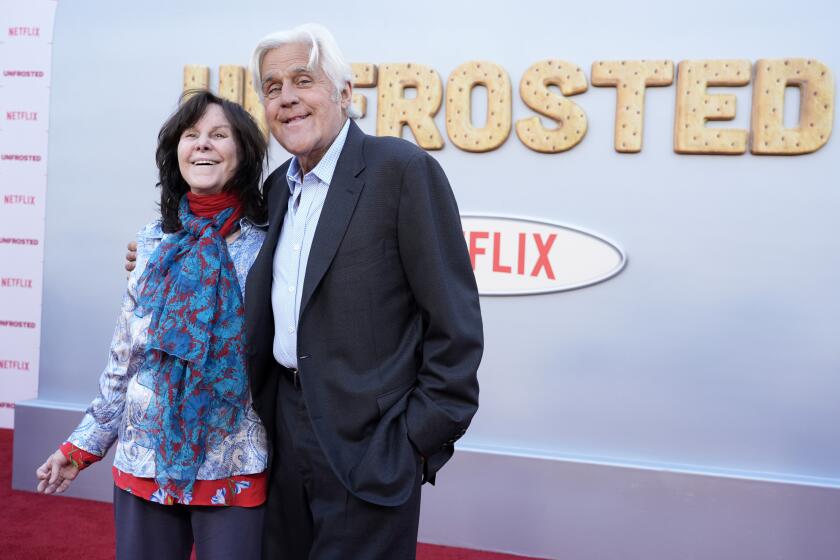Russell Peters is used to being ignored by Hollywood. It’s only made him funnier.

- Share via
Russell Peters has done the requisite Netflix stand-up specials (and a Prime Video one to boot), but he was making a point in 2016 when he called his second one “Almost Famous.” The Canadian-born comic, 54, was setting records in Canada, the U.K. and Australia with his arena show sales nearly 20 years ago, but despite consistently selling out performances on the road since then, he has never broken through in Hollywood and in the pop culture landscape.
Peters, who lives in Malibu, has certainly had frustrations, but he’s not bitter about it, nor does he wallow in regret. Instead, he remains proud of his successes and always ready to perform. He couldn’t even resist doing the crowd work that he’s known for in this interview, asking where I was from. When I said Brooklyn, he asked what high school I’d gone to back in the 1980s and then compared it with the one his Brooklyn friends had gone to. (Both my school and I were deemed inferior.)
Then he noted that I’d just missed his Beacon Theatre performance. When I said I was out for my birthday, he quipped, “That’s why I was doing the shows. It was supposed to be your surprise birthday show. Way to go.”
Peters spoke by video from a hotel in Texas, where he was performing to packed houses before returning home to L.A. for a Peacock Theater show on Saturday night. Then, he’ll head to Australia, Asia and Europe before coming back to the U.S. for another spate of shows. And he likes it that way: “When I’m home, everybody expects something from me, but when I’m on the road, I’m expected to just show up, tell my jokes, go to bed, and that’s it.”
This interview has been edited for length and clarity.
Do you still enjoy the whole on-the-road, playing arenas lifestyle?
It’s what I do. I also still love it and I’m really lucky. Let’s be honest — the industry doesn’t pay any attention to me. They’ve never been there for me, but every show I’m doing sells out, whether it was the Beacon Theatre in New York or where I am, in Addison, Texas, or coming back to Los Angeles. I wonder why I even cared about the industry, but that’s your ego.
How has your work evolved over all the years? Do you look back and think about how you’d redo jokes you once told?
I would probably articulate them better and chose different angles. When you start off, you take the obvious road. Then you need to start finding alternate routes — you become your own Waze, determining, “Do I want to go this way or that to get here?” You figure out what wording makes this joke concise, how to economize with words instead of overtalking, like I’m doing right now.

And I don’t focus as much [now] on my parents and their immigrant culture clash, because as you get older and life happens, you start getting other things to deal with. When I was younger, I had no other life experience other than dealing with racism and different cultures and all that stuff. And then you get married a couple of times, and you have a couple of kids, and your views on everything start to change.
You also develop an ability to get more honest about who you are and be more vulnerable onstage and take more chances.
And years ago, I said I’d never touch on religion or politics. But I have some religion and politics in my act now, because it needs to be spoken about now.
Everybody wants to be vocal about their beliefs and everybody wants to be right, but nobody’s right. With religion, they’re all wrong. All of your imaginary friends are wrong.
This imaginary friend doesn’t like this imaginary friend, and this book told them that this is theirs, and that book told these other people it’s theirs, so they’re killing each other over something they have no proof [of]. None of it is real. Somebody needs to tell you to your face, “You’re out of your f— minds.” There’s not an ounce of proof involved in any of this s—.
But when I do international shows, I can’t always talk about being atheist. In some places, it’s illegal or you can get killed for that. So I’ve got to be cognizant of that.
When I interviewed you back in 2010, you were talking to NBC about developing a series that you hoped would keep your voice and persona intact. What happened?
The industry never really understood me. I think they saw that I was successful, so they were like, “Ooh, we need to get on top of that so we can make money too.”
I was the first Indian comedian that big, and they wanted me to have the American Indian experience, but the Indians in the United States are the wealthiest minority in this country. And in Canada, Indians do well, but growing up we were all blue collar. So I can’t relate to these people where it’s “Your dad’s a lawyer, your mom’s a doctor, and you live in this gated community.” Where’s the struggle? Where’s the empathy?
The industry’s changed in the past 15 years, but it still has its way of viewing things. They still try to make me be more Indian and say, “You’ve got to have the accent.”
I don’t have an accent. If I do an accent, it’s not going to make sense. There’s a billion and a half people you can go pick with an accent, why do you need me to fake it? I was just up for a role on a sitcom. I had signed the contract to be the husband, but I just got a call saying they’re going another way because they want the guy to be more beta, and they said I was too alpha. And that guy was going to do the accent too. They always want you to be the weaker minority. I boxed. I do jiujitsu. I’m an alpha. I had beta-ed myself down for the role, but they wanted somebody more beta and more Indian. It’s not going to be me.
I’ve been in it too long to have nights where I go to bed and regret something. I can’t sell out this late in the game. I’ve got kids now. They’re going to see my choices.
Is there a benefit to being ignored by the industry — you don’t end up cosseted or overly corporate — at least as far as your stand-up goes?
Yes. A lot of these guys, when they get into the corporate world, their nest egg becomes so solid that their fear of losing that supersedes them being sharper onstage.
Did I make a lot of money? I did. Did I lose a lot of money? Absolutely. And I’m back to being a regular guy again. You know what I mean? When life hits you say, “I’m not impervious to life.”
Do you mind if I ask how you lost all that?
I’m not broke, but I’m not living that high life I was living 10 years ago.
I did dumb things. I would buy things I didn’t need, and I would take private jets when I didn’t need to because I could. And then the pandemic kicked me right in my nuts and told me who I was.
But I’ve always been a people person. I’ll do the same regular things I would’ve done if I had not made it. I still go to Waffle House. I went there yesterday. I had Jimmy John’s for breakfast today. I can certainly do the nicer things in life, but I just need something to eat for breakfast. I need a coffee.
More to Read
The biggest entertainment stories
Get our big stories about Hollywood, film, television, music, arts, culture and more right in your inbox as soon as they publish.
You may occasionally receive promotional content from the Los Angeles Times.











